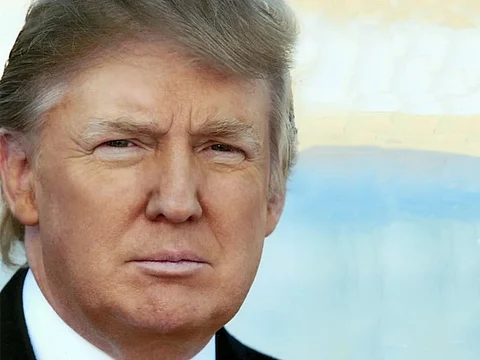THURSDAY, Oct. 12, 2017 (HealthDay News) -- President Donald Trump on Thursday signed an executive order that allows small businesses to band together and buy health insurance that flouts Affordable Care Act (ACA) regulations.
Trump said the move will promote health care choice and competition.
"You'll get such low prices for such great care," he said just prior to signing, CBS News reported.
But opponents say the order will undermine coverage offered to millions enrolled in the ACA, also known as Obamacare, by drawing younger, healthier enrollees into skimpy, cheaper plans.
Trump's signature to the new executive order comes less than three weeks before the Nov. 1 start to the open-enrollment sign-up season for Obamacare. It's unclear whether any new rule changes could be ready for implementation within that time frame.
"If there's a lot of hoopla around new options that may be available soon, it could be one more thing that discourages enrollment [in the ACA]," Larry Levitt, Kaiser Family Foundation's senior vice president, told the Washington Post.
The President's directive expands cross-state access to association health plans, which allow small businesses and trade groups to partner up and purchase health insurance. Employers also get wider leeway in using pre-tax dollars to cover workers' health expenses, avoiding rules imposed by the ACA.
Under the new rules, association health plans will also be exempt from certain ACA rules, such as requirements that they cover standard benefits like prescription drug coverage. They also could be subject to limits on annual and lifetime costs, and people with pre-existing conditions could be charged more for their coverage.
The Trump administration rule also eliminates restrictions on short-term health insurance plans, which offer limited benefits and are intended as a stopgap between jobs.
Under the Obama administration, such short-term plans could not last more than three months, but Trump plans to extend that duration to nearly a year.
Critics of the White House's latest move against the ACA include state insurance commissioners, health care policy experts, and many within the health-insurance industry.
They argue that the order will lead to the creation of a "shadow" health insurance system that competes directly against the ACA marketplaces, offering cheap and limited policies. Healthier Americans will gravitate toward the skimpier coverage offered under these plans, opponents say, leaving sicker people in ACA-governed plans that will become increasingly expensive.
"No one healthy is now going to sign up in the ACA risk pool, because they have this cheaper option," Deep Banerjee, a health care analyst at S&P Global Ratings, told Politico. "It just takes away the opportunity of this risk pool getting better."
But some business groups are cheering the move, saying it will allow them to provide employees with insurance options that are affordable and appealing.
Dirk Van Dongen, the president of the National Association of Wholesaler-Distributors, told The New York Times he's "delighted" by the move.
"Small to midsize businesses have very little leverage in the insurance market," Van Dongen said. "Anything that allows them to amalgamate their purchasing power will be helpful."
The Obama administration had been concerned that businesses could use association health plans to flout ACA policies and coverage mandates. In 2011, it said that such plans would still be subject to tight federal regulation.
Obama-era officials also were concerned that healthy people could abuse short-term health plans, using the cheap plans as their main means of health coverage so they could avoid buying a more expensive ACA marketplace plan.
The most immediate threat to the stability of ACA marketplaces could come from these short-term health plans, since many large national insurers already offer these plans, analysts told the Times. It could prove easy for them to make new short-term policies quickly available that take advantage of Trump's executive order.
"They can cobble these things together pretty easily," John Graves, a health policy expert at Vanderbilt University, told the Times.
Association plans could take longer to roll out, since the federal government will have to iron out regulations regarding them. But they could have the same sort of impact if they become widespread.
More information
Visit HealthCare.gov for details on how to enroll for health insurance under the Affordable Care Act.



